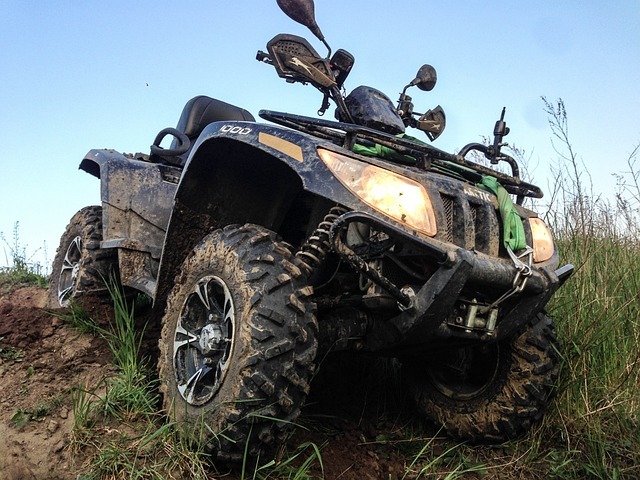With ATV/UTV Crashes on the Rise, DNR Board Discusses Loopholes in Safety Laws
Friday, August 15th, 2025 -- 10:00 AM

(Danielle Kaeding, Wisconsin Public Radio) As ATV/UTV crashes are on the rise, the policy-making board for the state Department of Natural Resources on Wednesday discussed loopholes in the law that are affecting safety.
According to Danielle Kaeding with the Wisconsin Public Radio, as of July 28, Wisconsin has seen 25 fatal crashes among all-terrain and utility terrain vehicles. Use of ATVs and UTVs has surged since the COVID-19 pandemic, leading to more injuries and deaths.
Last year, the DNR documented a record 512,792 registrations of ATVs and UTVs, as well as 316 injuries and 40 deaths. That’s the most injuries recorded in the last decade and second-highest number of fatalities next to 47 deaths recorded in 2021.
Jake Holsclaw, the DNR’s off-highway vehicle administrator, told the Natural Resources Board that most victims were not wearing a helmet or a seatbelt in fatal ATV/UTV crashes last year.
More than half of ATV/UTV deaths also involved alcohol. “We really want to get this across to folks that speed, alcohol, careless and reckless operation, those are the three biggest factors in why these crashes are occurring,” Holsclaw said.
Authorities issued 387 citations to ATV/UTV operators who were not wearing a helmet last year, as well as 115 citations for those not wearing a seatbelt. However, Holsclaw noted that the law only requires passengers, not UTV operators, to wear a seatbelt on public or private roads.
ATVs don’t have seat belts. At least 17 victims in fatal UTV crashes this year were not wearing a seatbelt. Loopholes also exist when it comes to state regulation of alcohol and drugs on recreational vehicles.
If an ATV/UTV operator is cited for operating while intoxicated, Holsclaw said that wouldn’t affect the individual’s driver’s license. They could also continue to operate ATVs/UTVs even if their license has been revoked or suspended.
Offenses on different recreational vehicles are also treated separately rather than lumped together. DNR wardens and local law enforcement issued 239 citations for operating while intoxicated last year, and those figures have been trending higher over the last decade.
Bill Smith, the board’s chair, asked whether there’s been work to close these legal loopholes that could reduce risks associated with ATV/UTV crashes. Holsclaw said the agency is updating its regulations to address any items related to equipment and safety.
“There’s been some efforts in the past couple years, but it always depends on if the legislators want to move forward with things,” Holsclaw said. In 2023, a bipartisan group of state lawmakers introduced a bill to make it illegal to carry open containers of alcohol while driving ATVs and UTVs on trails and public roads.
However, the bill failed to advance in the Legislature. In June, lawmakers put forth a bill that would make people liable for damages if they’re found operating an ATV or UTV in a “careless, reckless or negligent manner.”
Holsclaw said some municipalities have passed local ordinances that bar open containers of alcohol while operating ATVs/UTVs, as well as requiring operators to carry a driver’s license or insurance.
In Wisconsin, ATV operators must be at least 12 years old to ride on public trails and complete an ATV safety certification course if they were born after Jan. 1, 1988.
UTV operators must be at least 16 years old with the required safety certification while riding in public areas. Victims in crashes this year ranged from as young as 6 to as old as 97 years of age. Five victims in fatal crashes this year were 18 years old or younger.
More than 65,000 miles of public roads are open to ATVs and UTVs, as well as more than 2,100 miles of trails. About 69 percent of crashes occurred on public highways and road routes last year, according to the DNR.
Feel free to contact us with questions and/or comments.




